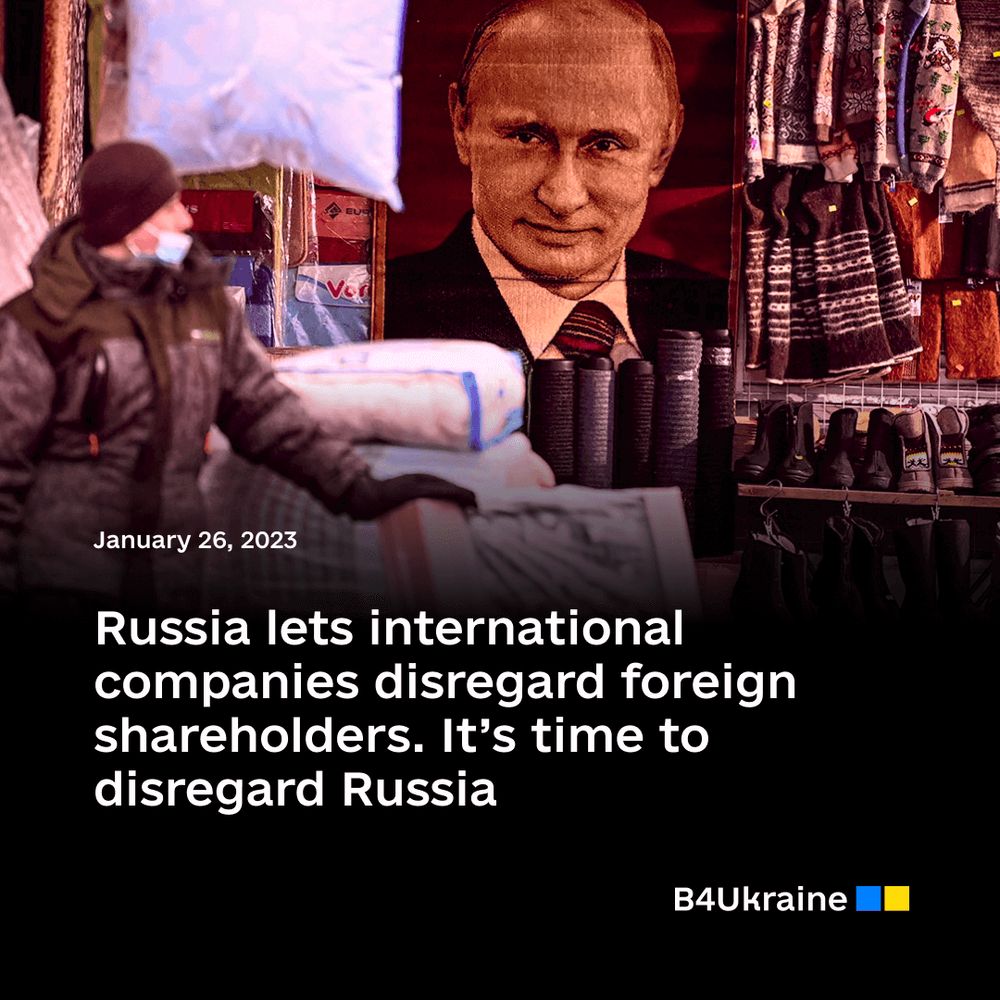
Russia has allowed major international companies to ignore the votes of shareholders from countries it considers “unfriendly” when making corporate decisions, according to a decree signed by President Vladimir Putin on January 17.
The order will apply to companies in the energy, mechanical engineering and trade sectors with annual revenue of more than 100 billion roubles (approximately $1.46 billion) and is scheduled to stay in force until the end of 2023.
The move is made “in response to unfriendly actions and actions violating international law by the United States and foreign states and international organisations acting jointly with them to impose restrictive measures in relation to Russian citizens and legal entities,” the decree said.
“With each new legislative action taken by Russia to support the invasion, companies that remain in Russia must accept that they are crossing a new red line in corporate complicity and material risk. There is simply no way for companies to reconcile their legal obligations to assist the Russian military through conscripts and material support with their obligations under international law. Threats to profits and portfolios, but most importantly to the Ukrainian people, lead to one inevitable conclusion for businesses — to end all operations and business relationships with the Russian government or risk enabling its growing crimes,” — says Richard Stazinski, Member of the B4Ukraine Steering Committee and Executive Director of Heartland Initiative.
According to a Russian Union of Industrialists and Entrepreneurs source quoted by Russian media, Putin’s order will affect about a dozen major international companies.
The decree has likely already tipped the scales in favor of the withdrawal decision of German gas and oil producer Wintershall Dea on January 17. According to CEO Mario Mehren, the Russian state has “de facto economically expropriated” Wintershall’s Siberian joint ventures Achimgaz and Severneftegazprom in three moves: In September 2022, Putin capped Severneftegazprom’s gas sales revenues to Gazprom by decree with a price cap.
This was followed in December by a price cap for all Wintershall-Dea joint ventures — this applies retroactively from March 1, 2022, meaning that everything the companies had generated since then had been “skimmed off,” Mehren said. At the same time, the joint venture partner Gazprom had begun to ignore Wintershall Dea’s co-determination rights, he added.
Moscow had already nationalised some other foreign-held assets, including Putin’s order on June 30 for the state to take complete control of the Sakhalin-2 gas and oil project.
B4Ukraine is urging multinationals to do the right thing and pull out of toxic Russia now. The farther Russia distances itself from the rule of law, the higher risk international companies face to lose their assets in the country.